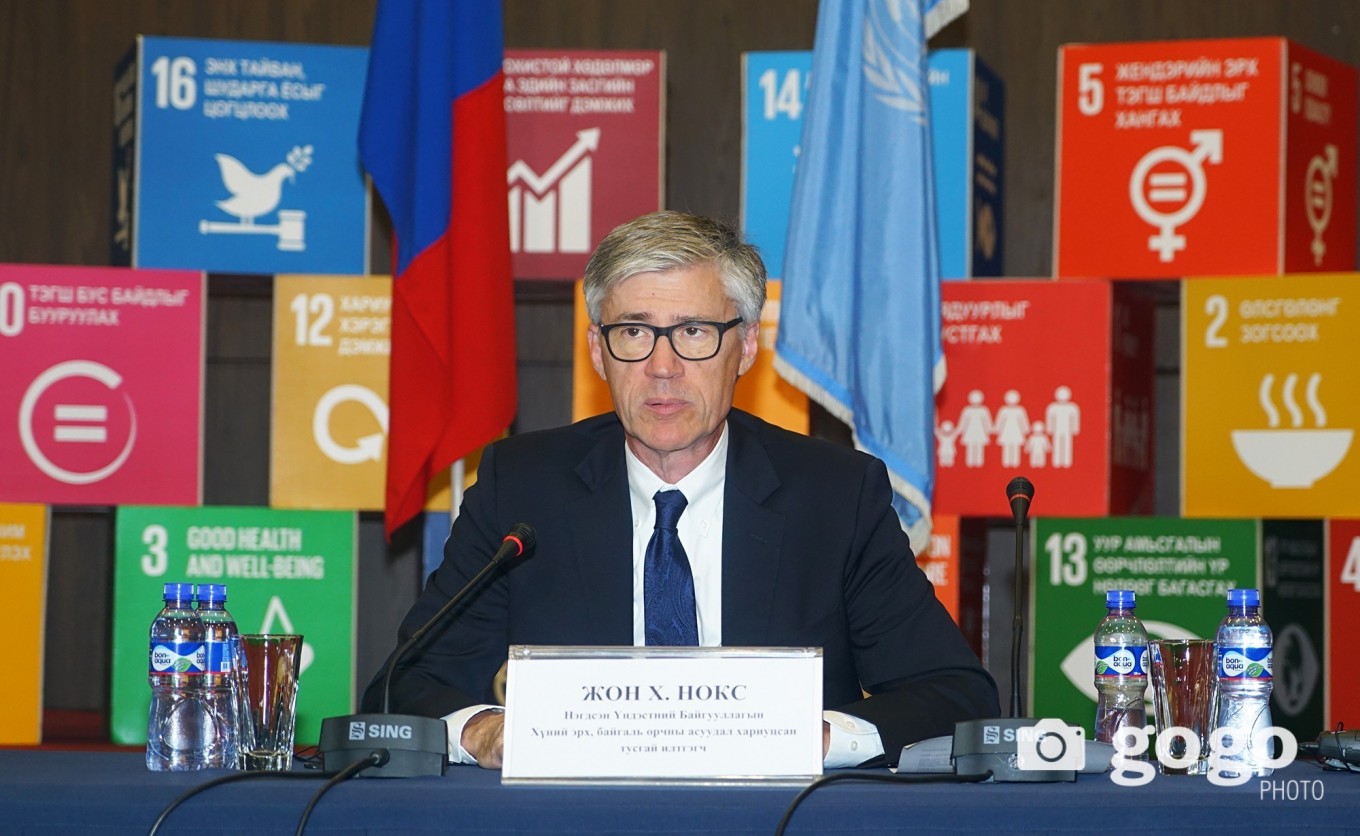Popular Reads
Top Results
Can't find what you're looking for?
View all search resultsPopular Reads
Top Results
Can't find what you're looking for?
View all search resultsAir pollution major cause for human rights violation in Mongolia: UN
Mongolis should promote human rights in the context of environmental protection, according to United Nations Special Rapporteur on human rights and the environment.
Change text size
Gift Premium Articles
to Anyone
T
he United Nations Special Rapporteur on human rights and the environment, John H. Knox assessed how Mongolia is promoting human rights in the context of environmental protection.
He presented his preliminary observations on Wednesday. He noted that air pollution in the capital city Ulaanbaatar is the major cause for human rights violation in Mongolia.
Knox has stayed in Mongolia since Sept. 19 and met with ministries, lawyers, parliament members and representatives of international and regional organizations.
He called for Mongolia to develop progressive initiatives to eliminate harmful effects of mining and coal consumption as well as to protect the environment.
He visited Zaamar soum of Tuv province and met artisanal miners and locals. During his visit, he witnessed that the herders lost their pastures and environment as a result of the implementation of "Gold 1" program. Therefore, he recommended to review the "Gold 2" program and discuss it with locals.
"The government needs to conduct a complex and detailed assessment of the environmental and social impact of the project," he added.
Even local residents opposed the project, it has been approved and started to issue licenses.
Moreover, mining activities pollute drinking water source such as rivers. He emphasized that the mining sector can benefit the economy and the lives of the people if they follow the standard and undergo rehabilitation after mining has finished.
Knox emphasized that due to the global warming, the climate in Mongolia is changing faster than other countries.
A shortage of grazing land caused by harsh weather condition, mining and agricultural activities are threatening the world famous tradition culture of nomadic herding.
He recommends the country to focus on the implementation of environmental standards and laws.
Ulaanbaatar city is not only having hazardous levels of air and environmental pollution but also drinking water issues.
Even the city is implementing certain programs to curb the air pollution, the results may not come up quickly.
Knox criticized the decision prohibiting the migration from the rural areas in order to reduce the air pollution. Even the number of migrants to the city is increasing, the decision is violating the human right to choose their place of residence.
Moreover, he said that rivers which are sources of drinking water were full of were full of garbage and ash.
This article appeared on the Gogo newspaper website, which is a member of Asia News Network and a media partner of The Jakarta Post










